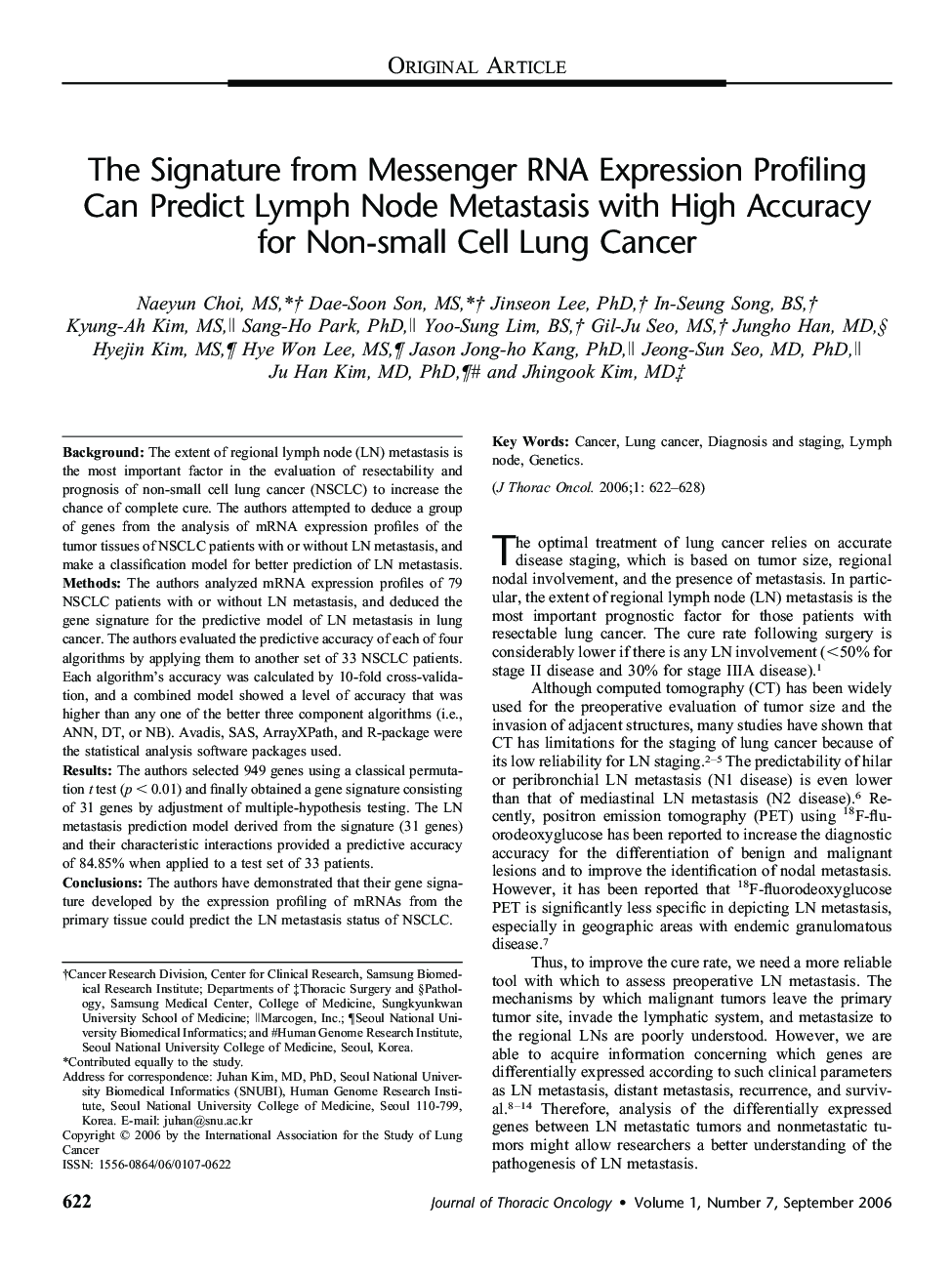| Article ID | Journal | Published Year | Pages | File Type |
|---|---|---|---|---|
| 3992886 | Journal of Thoracic Oncology | 2006 | 7 Pages |
BackgroundThe extent of regional lymph node (LN) metastasis is the most important factor in the evaluation of resectability and prognosis of non-small cell lung cancer (NSCLC) to increase the chance of complete cure. The authors attempted to deduce a group of genes from the analysis of mRNA expression profiles of the tumor tissues of NSCLC patients with or without LN metastasis, and make a classification model for better prediction of LN metastasis.MethodsThe authors analyzed mRNA expression profiles of 79 NSCLC patients with or without LN metastasis, and deduced the gene signature for the predictive model of LN metastasis in lung cancer. The authors evaluated the predictive accuracy of each of four algorithms by applying them to another set of 33 NSCLC patients. Each algorithm's accuracy was calculated by 10-fold cross-validation, and a combined model showed a level of accuracy that was higher than any one of the better three component algorithms (i.e., ANN, DT, or NB). Avadis, SAS, ArrayXPath, and R-package were the statistical analysis software packages used.ResultsThe authors selected 949 genes using a classical permutation t test (p < 0.01) and finally obtained a gene signature consisting of 31 genes by adjustment of multiple-hypothesis testing. The LN metastasis prediction model derived from the signature (31 genes) and their characteristic interactions provided a predictive accuracy of 84.85% when applied to a test set of 33 patients.ConclusionsThe authors have demonstrated that their gene signature developed by the expression profiling of mRNAs from the primary tissue could predict the LN metastasis status of NSCLC.
